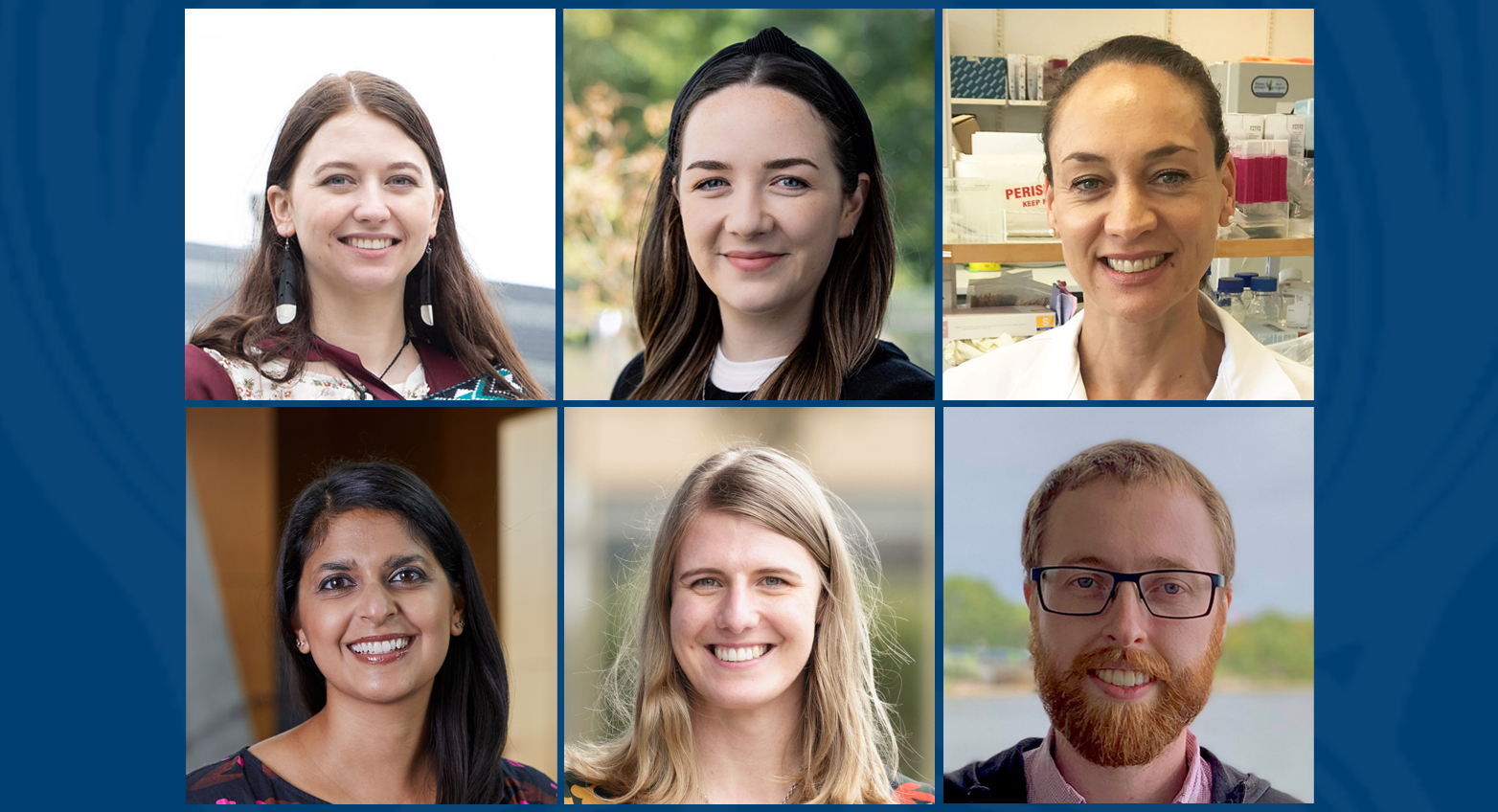Six emerging infectious diseases research leaders have been awarded Fellowships from Te Niwha to undertake targeted research and develop leadership skills essential to strengthening Aotearoa New Zealand’s preparedness for current and emerging infectious diseases threats.
The inaugural one-year Kia Niwha Leader Fellowships will support early and mid-career infectious diseases researchers through an intensive programme to lift their skills in areas of leadership necessary in best protecting New Zealanders from infectious diseases and their impacts. The Fellowship programme aligns with the core principles of Te Niwha – Tiakitanga (Accountability and Integrity), Hononga (Relationships), Tūhonotanga (Partnerships) and Rangatiratanga (Leadership).
Te Niwha is Aotearoa New Zealand’s national infectious diseases research platform, with a mission to ensure the country has the world-class research capability to best prepare for current and emerging infectious disease threats. In addition to funding research projects, Te Niwha invests in people, training, and collaboration to meet this mission.
With these fellowships, Te Niwha is committed to ensuring future leaders in infectious diseases are well supported and can significantly contribute to Te Niwha’s vision of building a strong, prepared and unified network.
The 2024 Kia Niwha Leader Fellows are:
- Dr Alice-Roza Eruera (Ngāpuhi-nui-tonu, Ngāti Ruanui) of University of Otago, Otakou Whakaihu Waka. Māori Kia Niwha Leadership Fellow.
- Dr Theresa Pankhurst (Ngāi Tahu, Ngāti Kahungunu, Ngāti Porou ) of the Malaghan Institute of Medical Research. Māori Kia Niwha Leadership Fellow.
- Dr Natalie Netzler (Ngaati Hamoa, Ngaati Hauaa) of Waipapa Taumata Rau, University of Auckland. Pacific Kia Niwha Leader Fellow.
- Dr Nadia Charania of AUT. Kia Niwha Leader Fellow.
- Dr Rose Collis of AgResearch. Kia Niwha Leader Fellow.
- Dr Andy Highton of University of Otago, Otakou Whakaihu Waka. Kia Niwha Leader Fellow.
An assessment panel of experts with long tenured experience domestically and internationally in infectious diseases reviewed the applications and interviewed the shortlisted candidates. On recommendation of the panel, the Te Niwha Directorate – Director Te Pora Thompson and Chief Science Advisor Distinguished Professor Nigel French – awarded six Fellowships. The Kia Niwha Leader Fellows work at five different organisations, in disciplines from immunology over virology to public health, across Te Niwha’s priority themes: prevention, surveillance, diagnostics, therapeutics and Te Ao Māori.
During their 12-month tenure, the Kia Niwha Leader Fellows will come together as a team who will individually grow their leadership capability and experience while supporting the growth of each other. The Fellows will attend wānanga (workshops) that will bring together established leaders across the range of fields, specialities, iwi and pacific partners to manifest all-round pandemic and infectious diseases research leaders. Fellows will also be supported to spend up to four weeks on an international attachment relevant to their specialty area to connect world-class research capability and further enhance the science leadership of Te Niwha.
In advance of the first wānanga in June, Fellows are working towards refining their research leadership projects based on the feedback of panelists - and with the support of the Chief Science Advisor of Te Niwha.
Biographies of Te Niwha Leaders Fellows:
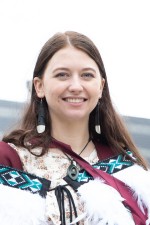 |
Dr Alice-Roza Eruera – Māori Kia Niwha Leader FellowResearch Leadership Project: Mā te kimi ka kite; Visualising native viruses of Aotearoa whānui University of Otago, Otakou Whakaihu Waka Priority Theme: Prevention |
Dr Alice-Roza Eruera (Ngāpuhi-nui-tonu, Ngāti Ruanui) is a cryo-electron microscopist who specializes in modelling the 3D structures of viruses and their proteins. These 3D structural models are built computationally using data collected in high-end electron microscopes. These atomic models can inform how viruses' function, infect the host cell, and evolve over time. Dr Eruera has worked with viruses that infect animals, people and bacteria, including human norovirus, SARS-related coronaviruses, animal hepeviruses, and bacteriophages. Of these, she has solved a wide range of different physical structures. As a postdoctoral fellow, she has now turned her attention to a small number of native viruses from Aotearoa New Zealand which she seeks to solve structures for. These 3D structures should be highly informative about these native viruses, which have evolved in complete isolation for a very long time and are highly distinct and unique to this whenua. In addition to structural virology, Dr Eruera also an avid language learner, passionate about Te Ao Māori, and is an amateur scientific illustrator.
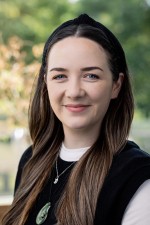 |
Dr Theresa Pankhurst – Māori Kia Niwha Leader FellowResearch Leadership Project: Preclinical development of vaccines that rejuvenate the ageing immune system Malaghan Institute of Medical Research Priority Theme: Therapeutics |
Dr Theresa Pankhurst is an immunologist who is interested in the fundamental biology behind effective vaccine-mediated immunity and how the immune system can be harnessed to improve vaccine efficacy for future infectious disease threats. She graduated her PhD in Biomedical Science in 2021 from Te Herenga Waka – Victoria University of Wellington, where her research focused on improving mucosal vaccine design against respiratory viruses by targeting lung-resident innate-like T cells as cellular adjuvants.
Following her PhD she joined the Malaghan Institute of Medical Research’s Vaccine Alliance Aotearoa New Zealand (VAANZ) – Ohu Kaupare Huaketo, where she was part of the vaccine evaluation team that designed and tested a preclinically efficacious COVID-19 booster vaccine. During this time she became the inaugural recipient of the Te Urungi Churchill College By-Fellowship that supported her to incorporate aspects of Te Ao Māori into her research journey, as well as the opportunity to gain international expertise in vaccine immunology.
Currently Dr Pankhurst has been seconded to Cambridge’s Babraham Institute as a postdoctoral researcher and by-fellow at University of Cambridge’s Churchill College. Here she is leading a research partnership, weaving together the Malaghan’s RNA technology platform with Babraham’s expertise in ageing immunity, with the goal to develop novel vaccines for Aotearoa NZ that rejuvenate the ageing immune system.
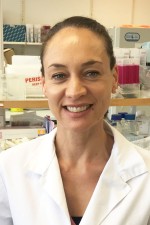 |
Dr Natalie Netzler – Pacific Kia Niwha Leader FellowResearch Leadership Project: Broad-spectrum antiviral activities within indigenous Pacific traditional medicines Waipapa Taumata Rau, University of Auckland. Priority Theme: Therapeutics |
Dr Natalie Netzler is a New Zealand born Sāmoan (Moto’otua) and Māori (Ngāti Ruanui, Ngāti Hauā) virologist and Senior Lecturer at the University of Auckland and an Associate Researcher of the Maurice Wilkins Centre. She holds a PhD from the University of New South Wales in Australia, and has several years experience developing antivirals and vaccines to combat viral infections from both biotech and academic settings.
Currently, Dr Netzler’s research is focused on broad-spectrum antiviral discovery and development, and how the unique genetics of Pacific and Māori populations impact the immune response. She also has a keen interest in the antiviral properties of traditional medicines from across the Pacific. Dr Netzler volunteers her spare time for infectious disease education with Pacific and Māori communities.
 |
Dr Nadia Charania – Kia Niwha Leader FellowResearch Leadership Project: Applying complexity science to improve outcomes for migrants and refugees during pandemics AUT Priority Theme: Prevention |
Dr Nadia Charania is a Senior Lecturer in Public Health and Co-Director of the Migrant and Refugee Health Research Centre at the Auckland University of Technology. Originally trained as a respiratory therapist, she completed her doctoral studies in environmental sciences and public health in Canada before migrating to Aotearoa New Zealand. Nadia is an applied public health researcher who specialises in qualitative and participatory action research methodologies. She is primarily interested in addressing health inequities related to infectious diseases among marginalised populations. With equity and social justice at the core of her research programme, she is passionate about addressing locally relevant issues in partnership with communities. She has primarily engaged with migrant and refugee background communities, in addition to Māori, Pacific, and Asian communities. The aim is to achieve meaningful outcomes and advocate for systems-level change to improve the health and wellbeing of marginalised communities. She is currently collaborating on research related to access and utilisation of health and immunisation services, vaccination attitudes and behaviours, and community-based pandemic planning.
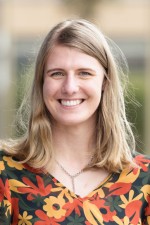 |
Dr Rose Collis – Kia Niwha Leader FellowResearch Leadership Project: He puna mātauranga rānei te māwhaiwhai The house of the spider, a spring of knowledge or not? AgResearch Priority Theme: Surveillance |
Dr Rose Collis is a post-doctoral researcher at AgResearch in the Food System Integrity Team and based at the Hopkirk Research Institute, Palmerston North. Raised on a dairy farm in Hukanui, Eketahuna, Dr Collis completed her PhD at Massey University, focusing on the prevalence and distribution of antimicrobial resistance determinants on New Zealand dairy farms. She currently partners with community groups, farmers, mana whenua and various local and government stakeholders in collaborations which aim to understand the impact of various land-use activities on water quality. Here she applies different genomics methods to assess levels of antimicrobial resistance and waterborne pathogens, informing local communities of potential public health risk and opportunities for improved farm systems and catchment biodiversity. Dr Collis’ key capabilities extend from microbiology, genomic epidemiology, and metagenomics through to outreach with local catchment communities and school kids.
 |
Dr Andy Highton – Kia Niwha Leader FellowResearch Leadership Project: Mini-lungs to study viral–immune responses University of Otago, Otakou Whakaihu Waka Priority Theme: Diagnostics, Therapeutics |
Dr Andy Highton is a Research Fellow at Otakou Whakaihu Waka, the University of Otago, where he is researching ways to understand and improve gut health specifically relating to inflammatory bowel diseases and colorectal cancer. He has had previous positions at the University of Oxford in the United Kingdom and at the Leibniz Institute of Virology in Germany. While overseas, he researched immune functions in viral infection and how cellular metabolism is linked to immune potency. This included in-depth study of natural killer cells, an immune first line of defence against viral infection. In Germany, he also used mini-lung culture techniques to study sex differences in COVID-19 outcomes.
Dr Highton believes impactful research outcomes can come from working directly with patients and their communities. As a Kia Niwha Leader Fellow, he will use his accumulated knowledge and this principle to create a platform to study human lung disease, weaving together facets of lung physiology, immunity and viral infection. This model of human lung disease will be used to better understand lung infections, with potential for use against emerging threats, and with the ultimate aim of improving health outcomes for New Zealanders now and in the future.

